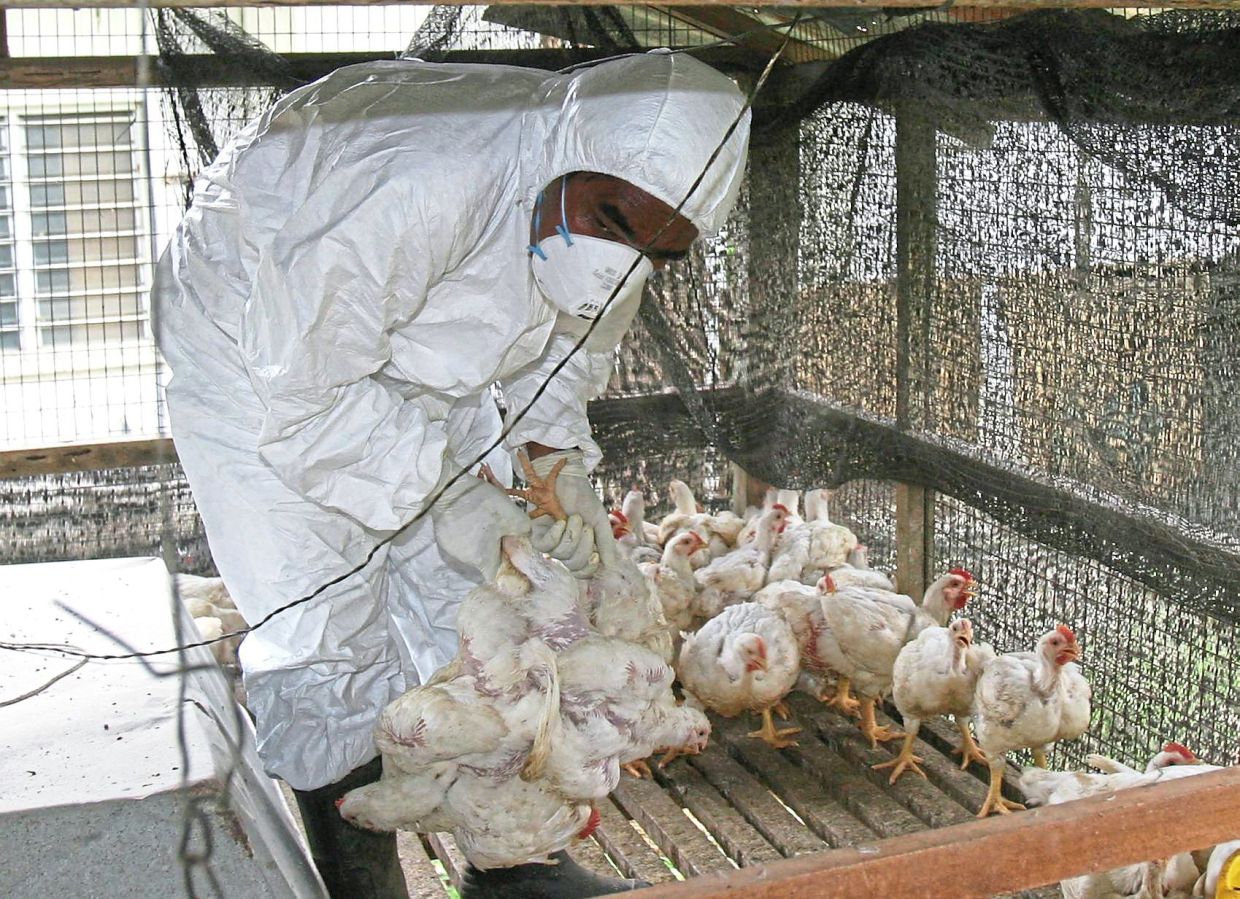IT wasn’t too long ago that the world was reeling from the Covid-19 pandemic, so when news about another infectious disease began emerging recently, people were understandably worried.
Avian influenza, or bird flu, has been around before affecting livestock but the worry now was that the virus could enter our food supply or that it would jump from animals to humans and begin another contagion.
On Wednesday, the US Centers for Disease Control and Prevention identified the country’s fifth human case involving the H5N1 strain tied to dairy cows. As with the previous four cases which first took place in Colorado, the latest victim is also a worker on a dairy farm and has since recovered following treatment.
Subsequently, back home, Malaysia’s Veterinary Services Department is reviewing the import of dairy products to ensure the country’s food safety.
So far, Malaysia has yet to record any recent cases of H5N1 animal-to-human transmission, nor is likely to face an outbreak, experts say.
But the country is no stranger to the virus; as recorded in the Malaysian Journal of Veterinary Research, Malaysia has experienced four waves of H5N1 outbreaks – in 2004, 2006, 2007, and 2017, which affected chicken livestock. Fortunately, no human deaths were recorded.
“In general, while humans can be infected, there is no clear evidence of human-to-human transmission as observed from past H5N1 outbreaks [in Malaysia],” says Dr Tiong Vunjia, senior lecturer at Universiti Malaya’s biomedical science department.
Despite global concerns, local experts are optimistic that Malaysia’s guidelines on mitigating possible outbreaks remain adequate.
Chicken or beef?
The H5N1 virus can be quite a nasty bug. The symptoms of humans affected by the virus range from coughing, fever, and respiratory failure to seizures.
In livestock, chickens for example can develop respiratory distress and even die from a multitude of symptoms; for cattle, symptoms include reduced milk production, loss of appetite and fever.
Universiti Kebangsaan Malaysia’s public health expert Prof Dr Sharifa Ezat Wan Puteh says as seen in previous cases, Malaysia is facing a greater risk of H5N1 infection brought in by wild birds infecting livestock such as chickens and ducks rather than cattle.
In 2017, the outbreak at a village in Kelantan saw 15 out of 26 chickens killed by the virus, before the rest were culled to prevent a further spread.
“Infected birds shed avian influenza viruses through their saliva, mucus, and faeces. Human infections with avian influenza occur when the virus enters a person’s organs through the eyes, nose, by inhalation, and mouth, the saliva,” says Sharifa Ezat.
She adds that while the current overall public health risk posed by the H5N1 bird flu virus is low, the World Health Organisation (WHO) has urged countries to stay alert for cases of animal-to-human transmission as a zoonotic disease.
She points out that more than 120 dairy herds across the United States have now tested positive for bird flu, but officials have so far said the risk to the public is low because dairy products are pasteurised and that process will kill off any dangerous pathogens, including viruses.
Public health physician Datuk Dr Zainal Ariffin Omar says cases of animal-to-human transmission are scarce and there has yet to be any report on affected bird populations or outbreaks in domestic poultry.
“There are no reports. And so far, when it comes to human-to-human transmission, it is very rare. Although there may be some isolated cases reported elsewhere [in other countries].”
In May, Monash University Malaysia’s molecular virology expert Assoc Prof Vinod Balasubramaniam said in a commentary that there is potential for human-to-human transmission following an outbreak, but only if an infected person has already contracted human influenza.
“This is especially through genetic reassortment when a person is infected with both a human influenza virus and an avian influenza virus at the same time.”
Got milk?
As a consumer, if you are worried about drinking cow’s milk, know that pasteurisation works in inactivating the H5N1 strain.
In one of the latest developments, the US Food and Drug Administration (FDA) says pasteurised grocery store milk remains safe from the highly pathogenic H5N1.
ALSO READ: What precautions Malaysia takes
Universiti Malaya’s Assoc Prof Dr Cindy Teh Shuan Ju from the microbiology department, says pasteurisation processes are effective at inactivating viruses, including bird flu virus in milk.
“However, the inactivation is highly dependent on the conditions applied, such as the temperature and duration.
“In the study mentioned in US news, the flash pasteurisation process which involved heating of milk at 71.7°C for 15 seconds was used and was effective in reducing the viral load. This enhanced the safety of milk,” Teh says.
How would this study apply to Malaysia and what are its implications for public health?
Teh says in Malaysia, the quality indicators of milk are only based on the bacteria and coliform counts.
“So far there are no indicators to measure the viral load in the milk. By learning more about the presence of highly pathogenic avian influenza in the milk and the effectiveness of pasteurisation, we will be expecting reports and studies from our local settings.”
On chickens or livestock in general, Sharifa Ezat says measures to reduce infection include procedures to reduce exposure to birds and mammals that are potentially infected with bird flu or other animal influenza viruses.








